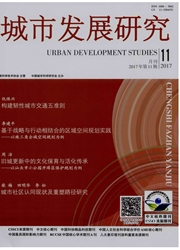

 中文摘要:
中文摘要:
非正规住房是发展中国家在快速城市化进程中普遍存在的城市现象,本文通过综述非正规住房内涵特征、研究进展,梳理国内以城中村为典型的非正规住房发展的四阶段特征、国外以自助型居住区为典型的非正规住房的特征及改造模式,揭示出国内外非正规住房发展在合法性、住区档次、住房供应体系作用等方面的共性,以及在成因、居住主体、建设管理主体等方面的差异.在此基础上,归纳总结国外非正规住房发展及改造对我国的借鉴,包括对非正规住房价值认识以及改造中对外来人口关注等方面.
 英文摘要:
英文摘要:
Informal housing is a widespread phenomenon under the rapid urbanization in developing countries. This paper reviews the connotation features and advance research of informal housing. It sorts out four-phase features of the domestic development of informal housing by introducing urbanized villages which are typical in China and discusses the feature and reform model in foreign countries taking self-help housing for example. This paper also makes comparison of the domestic and foreign development of informal housing which share commonalities in legality, settlements grade and housing supply system and makes contrast between them from three aspects, including main residence, main causes and main construction management. On this basis, we summarize the experience of foreign development and reform in informal housing for China, including the understanding of its value, concerns about the immigrant population in transformation etc.
 同期刊论文项目
同期刊论文项目
 同项目期刊论文
同项目期刊论文
 期刊信息
期刊信息
